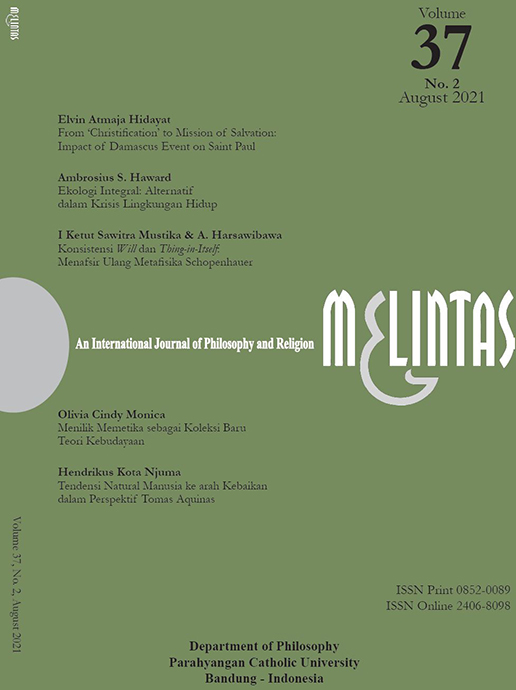Konsistensi Will dan Thing-in-Itself: Menafsir Ulang Metafisika Schopenhauer
Main Article Content
Abstract
This article aims to present a different reading from the mainstream interpretation that corners Schopenhauer: a consistent interpretation. The authors use a method of acquiring knowledge by acquaintance and description. Schopenhauer’s theory is often considered inconsistent because it concludes will as a thing-in-itself. The will, which is obtained through direct observation of the body, is a representation that is still shrouded in the veil of time form, while thing-in-itself is completely different from representation, and is beyond the reach of space, time, and causality, with reference to principle of sufficient reason. Concluding will as a thing-in-itself is therefore considered inconsistent. However, this interpretation might be wrong because Schopenhauer never claimed that direct observation of the body would yield knowledge of the thing-in-itself. From the very beginning, he realised that direct knowledge of thing-in-itself was impossible, because the knowledge, regardless of its form, was always knowledge of appearances. He knows that will does not qualify as a thing-in-itself. The true function of the will in Schopenhauer's metaphysics lies in the name and concept by which one can think about thing-in-itself objectively.
Article Details

This work is licensed under a Creative Commons Attribution-NonCommercial 4.0 International License.
MELINTAS applies the Creative Commons Attribution (CC BY NC) license to articles and other works we publish. If you submit your paper for publication by MELINTAS, you agree to have the CC BY NC license applied to your work.
